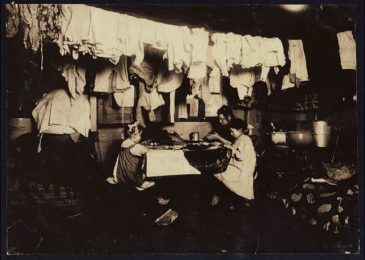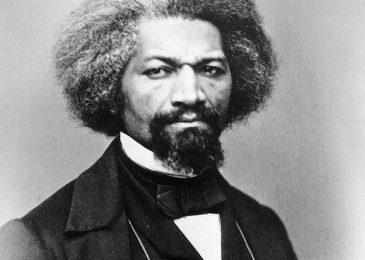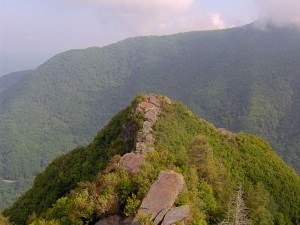A while back I asked several historians for their top five biographies, representing the genre at its best, with a little explanation for each.
Here are their answers:
Mark Noll
Mark Noll is Francis A. McAnaney Professor of History at Notre Dame.
1. Malcolm Muggeridge, The Chronicles of Wasted Time, 2 vols. (vol. 1, The Green Stick; vol. 2, The Infernal Grove)
This is a great book, although what kind of great book is hard to say. Muggeridge presented this two-volume work as an autobiography, but the books are selective to the point of fiction and strongly back-loaded to reflect Muggeridge’s opinions as they had come to develop by the 1970s. Doubts as to genre notwithstanding, the volumes are as crisp an evisceration of the modern Zeitgeist as one could possibly hope to read. Muggeridge knew almost everyone of note in Britain and also in many other places of the world. As told here, his life was a perpetual series of disillusionments with the gods of the age (Fabianism, Marxist socialism, western affluence) and a progressive self-understanding of what it meant as a journalist extraordinaire, even in the most secular of centuries, to be haunted by God.
2. David Newsome, The Parting of Friends: The Wilberforces and Henry Manning. London: John Murray, 1966 (reprinted with this title by Eerdmans in 1993; the first American printing was by Harvard University Press in 1966 under the title The Wilberforces and Henry Manning).
Newsome’s multiple biography is an old-fashioned kind of history about old-fashioned kind of people. His subjects lived in the luminous circle created by the household of William Wilberforce in the first half of the nineteenth century. This circle was made up of several of Wilberforce’s children, their friends and colleagues, and their sisters and sisters’ friends, themselves a remarkable group of Victorian women. The plot line is the story of the drift from the sturdy evangelicalism of the older Wilberforce to high church Anglicanism and then, for some under the guidance of John Henry Newman, to the Roman Catholic church. The poignancy of the story is the combination of intense fraternal devotion and painful ecclesiastical separation. When some in this circle remained Anglican, the result was broken relationships in homes, colleges (most were connected to Oxford), and the church. Newsome’s gift is to shape the treasure trove of letters left by the participants (they were scribbling away all the time) into a compelling narrative that, while it solves no problems of theology or church loyalty, nonetheless demonstrates the profound humanity of those who engaged those issues in that corner of Victorian England a century and a half ago.
3. George Marsden, Jonathan Edwards: A Life (Yale University Press, 2003).
Marsden succeeds in bringing biography to theology and theology to biography with unusual clarity about both the person and the times.
4. Roland Bainton, Here I Stand: A Life of Martin Luther
Newer scholarship has altered details (the book was first published in 1950), but it remains a captivating account of a life-changing person in a life-changing era.
5. Adrian Desmond and James Moore, Darwin: The Life of a Tormented Evolutionist
This biography offers scintillating history of science-with-culture for one of the most important thinkers of the modern period.
Runners Up (some very close):
- Bruce Hindmarsh, John Newton and the English Evangelical Tradition: Between the Conversions of Wesley and Wilberforce
- Allen C. Guelzo, Abraham Lincoln: Redeemer President
- Richard Carwardine, Lincoln: A Life of Purpose and Power
- Heiko Oberman, Luther: Man Between God and Devil
- H.G. Haile, Luther: An Experiment in Biography
- E. Gordon Rupp, Luther’s Progress to the Diet of Worms
- Peter Brown, Augustine of Hippo
- G. K. Chesterton, Saint Thomas Aquinas—”The Dumb Ox”
- Edmund S. Morgan, The Gentle Puritan: A Life of Ezra Stiles
- John Pollock, Wilberforce
George Marsden
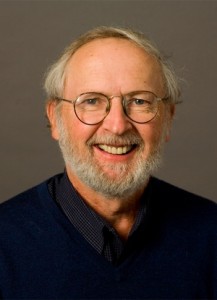
George M. Marsden is Professor of History, Emeritus, at the University of Notre Dame.
1. Peter Brown, Augustine of Hippo.
A classic work and a great exposition of the man and of his era.
2. Robert Caro, Master of the Senate: The Years of Lyndon Johnson.
Wonderful example of the art of great story telling.
3. Walter Lowrie, A Short Life of Kierkegaard.
Probably dated by now, but a great brief introduction to a most complex figure
4. James D. Bratt, Abraham Kuyper: Modern Calvinist, Christian Democrat.
A new biography. Wonderfully balanced account about a multifaceted thinker and leader still important for today.
5. Richard Westfall, Never at Rest: A Biography of Isaac Newton.
Excellent at presenting Newton’s thought in the context of its times.
Allen Guelzo
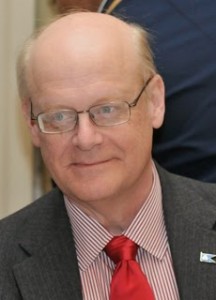
Allen C. Guelzo is the Henry R. Luce Professor of the Civil War Era and Director of the Civil War Era Studies Program at Gettysburg College.
1. Perry Miller, Jonathan Edwards (1949).
Although lopsided in its effort to place Edwards in the stream of John Locke, Miller’s Edwards is a work of real literary genius.
2. Richard S. Westfall, Never at Rest: A Biography of Isaac Newton (1980).
A glowingly comprehensive and sympathetic biography of one of the greatest of scientific minds.
3. Peter Brown, Augustine of Hippo (1967).
A stupendously erudite re-creation, not only of Augustine, but of the entire world of late antiquity.
4. Edmund S. Morgan, The Puritan Dilemma: The Story of John Winthrop (1962).
A short but wickedly-well-written biography of the first governor of the Massachusetts Bay colony, done with surprising sympathy.
5. Henry D. Rack, Reasonable Enthusiast: John Wesley and the Rise of Methodism (1989).
No other single work on Wesley and 18th-century England captures the times and the man so well.
Carl Trueman
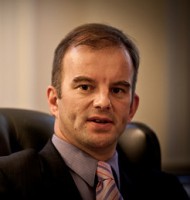
Carl R. Trueman is the Paul Woolley Professor of Church History at Westminster Theological Seminary in Philadelphia.
1. Simon Sebag Montefiore, The Young Stalin (Vintage, 2008).
A prequel to Montefiore’s Stalin: Court of the Red Tsar, this is a fascinating study of the early development of the later Soviet dictator and proof of the maxim that the child is father of the man, even when the man is named Joseph Stalin.
2. Michael Korda, Hero: The Life and Legend of Lawrence of Arabia (Harper Perennial, 2011).
The most readable of many biographies of T.E. Lawrencs, the ultimate intellectual man of action and a personal hero.
3. Sheridan Gilley, Newman and His Age (Darton, Longman and Todd, 2002).
Ian Ker’s is surely the definitive biography of John Henry Newman but I give this the edge as being more readable and as offering a fascinating portrait not simply of the most influential religious thinker of the nineteenth century but also of the era in which he lived.
4. D.G. Hart, Defending the Faith: J. Gresham Machen and the Crisis of Conservative Protestantism in Modern America (P & R Publishing, 2003).
An important study of a key figure in the fundamentalist-modernist debate which also helps to demonstrate why the simple polarities of liberal/conservative are incapable of capturing the nuances of what actually happened.
5. Heiko Oberman, Luther: Man Between God and Devil (Yale, 2006).
Oberman’s most brilliant, speculative, flawed, and thought-provoking book is a fascinating study of the Luther as a late medieval figure. Blending social history, textual study, theology, philosophy, and psychology in a fascinating mix, this is the book which transformed my own thinking about Luther.
Bruce Gordon
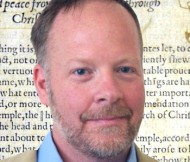
Bruce Gordon is Titus Street Professor of Ecclesiastical History at the Divinity School of Yale University.
1. Peter Russell, Prince Henry “the Navigator”: A Life (Yale, 2001).
Russell’s command of every detail, from ship construction to tribes in Senegal, is evident at every point in this beautifully written and compelling tale.
2. Claire Tomalin, Samuel Pepys: The Unequalled Self (2002).
The book captures the vivacity, wit, and debauchery of Pepys through a sympathetic account of his life in the fast-paced world of Restoration England.
3. George M. Marsden, Jonathan Edwards: A Life (2003).
From start to finish, pure elegance of prose and a magisterial command of Edward’s thought and character.
4. Rüdiger Safranski, Nietzsche: A Philosophical Biography (2002).
Focuses on a brilliant and tortured mind while telling the life of a remarkable man: a rare balance of narrative and philosophical discussion.
5. Jonathan Bate, John Clare: A Biography (2003).
An extraordinary nineteenth-century English poet from the laboring class who achieved brief fame in London before descending into the hell of mental illness.
Thomas Kidd
Thomas Kidd is distinguished professor of history at Baylor University.
He writes, “I am focusing on biographies from the colonial and Revolutionary eras of American history. I heartily agree with Mark Noll’s recommendation of my doctoral adviser George Marsden and his Jonathan Edwards biography, which would otherwise be at the top of my list. Since he’s already mentioned it, here’s the next five.”
1. David Hackett Fischer, Paul Revere’s Ride (Oxford University Press, 1994).
Fischer not only offers an evocative treatment of Revere and his world—which was more interesting than what Longfellow’s “The Midnight Ride of Paul Revere” told us—but one of the best books on the American Revolution, period.
2. Kenneth Silverman, The Life and Times of Cotton Mather (Harper and Row, 1984).
A Pulitzer Prize-winning biography of one of the most intense (some might say neurotic), prolific, and tragic of all the American Puritans. Reading this will help you understand why one of his opponents once firebombed Mather’s house!
3. Laurel Thatcher Ulrich, A Midwife’s Tale: The Life of Martha Ballard, Based on Her Diary, 1785-1812 (Knopf, 1990).
Another Pulitzer Prize-winner, Ulrich’s remarkable recreation of Ballard’s compelling life is perhaps the best American social history biography ever written.
4. John Demos, The Unredeemed Captive: A Family Story from Early America (Knopf, 1994).
This is a biography of the Williams family, especially of Eunice Williams, who fell victim to a 1704 Native American raid on Deerfield, Massachusetts. Demos tells the poignant story of how the seven year old Eunice grew up among the Mohawks, married an Indian man, accepted Catholicism, and never returned to the Puritan fold in spite of fervent appeals by generations of her family.
5. Catherine Brekus, Sarah Osborn’s World: The Rise of Evangelical Christianity in Early America (Yale University Press, 2013).
As I wrote in my review for The Gospel Coalition, Brekus’s extraordinary portrait of Osborn may be the best biography we have of an American evangelical woman.
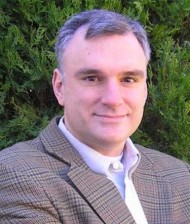
John Fea
John Fea is professor of American history and chair of the history department at Messiah College in Grantham, PA.
1. Debby Applegate, The Most Famous Man in America: The Biography of Henry Ward Beecher.
A vivid portrayal of 19th-century culture through the life of a member of one of the century’s most famous families.
2. Richard Bushman, Joseph Smith: Rough Stone Rolling.
Bushman brings the founder of Mormonism to life with elegant prose and scholarly insight.
3. Robert Caro, The Power Broker: Robert Moses and the Fall of New York.
Caro is known today for his biographies of Lyndon B. Johnson, but this earlier biography of the urban planner and landscape architect who “built” 20th century New York City reads like a novel.
4. George Marsden, Jonathan Edwards: A Life.
The best biography of Edwards ever written and a model for religious biography.
5. Eric Miller, Hope in a Scattering Time: A Life of Christopher Lasch.
Miller’s bio of late-twentieth century cultural critic and historian Christopher Lasch is one of the best intellectual biographies I have read.
Douglas Sweeney
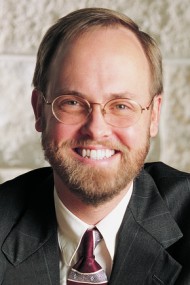
Douglas Sweeney is professor and chairman of church history and history of Christian thought at Trinity Evangelical Divinity School, as well as director of their Jonathan Edwards Center.
1. Roland Baiton, Here I Stand: A Life of Martin Luther.
It remains the most widely read bio of Luther for good reason. It is a wonderful read on the most important Protestant pastor in history.
2. Skevington Wood, The Burning Heart: John Wesley: Evangelist.
Readers can feel Wesley’s heart burning on almost every page.
3. Peter Brown, Augustine of Hippo: A Biography.
Brown has spent his career recreating the world of late antiquity. This biography places our most fecund doctor of the church in that context beautifully.
4. George Marsden, Jonathan Edwards: A Life.
This is the definitive biography of our most important evangelical intellectual.
5. Alister McGrath, C. S. Lewis—A Life: Eccentric Genius, Reluctant Prophet.
This book makes great use of the recently released correspondence of Lewis, making this late-modern evangelical hero come to life (warts and all) for his fans.
Darryl Hart
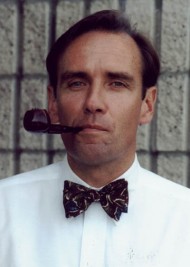
D. G. Hart is distinguished visiting assistant professor of history at Hillsdale College.
1. Roland Bainton, Here I Stand: A Life of Martin Luther (1950).
A colorful treatment of an even more colorful figure that captures the central dynamic of the Reformation, namely, how to be right with God.
2. Stewart Brown, Thomas Chalmers and the Godly Commonwealth in Scotland (1982).
A scrupulously researched inquiry that situates a hero of Scottish Calvinism within the political, educational, and ecclesiastical complexities of nineteenth-century Scotland.
3. Harry S. Stout, The Divine Dramatist: George Whitefield and the Rise of Modern Evangelicalism (1991).
A provocative account that looks past hagiography to capture the human (and sometimes unflattering) aspects of Protestantism’s greatest evangelist.
4. Terry Teachout, The Skeptic: A Life of H. L. Mencken (2002).
Arguably the best biography of the infamous literary critic in part because the author, a music critic, takes into account the subject’s love of music.
5. Bruce Gordon, Calvin (2009).
A smartly conceived narrative that allows Calvin’s “greatness” to emerge not from hindsight but from the accidents of sixteenth-century Europe.
Sean Michael Lucas

Sean Michael Lucas is senior minister at The First Presbyterian Church in Hattiesburg, Mississippi, and professor of church history at Reformed Theological Seminary in Jackson, Mississippi.
1. D. G. Hart, Defending the Faith: J. Gresham Machen and the Crisis of Conservative Protestantism in Modern America (Johns Hopkins, 1994; reprint, P&R).
2. Allen Guelzo, Abraham Lincoln: Redeemer President (Eerdmans, 1999).
3. Bruce Gordon, Calvin (Yale, 2009).
4. Harry S. Stout, A Divine Dramatist: George Whitefield and the Rise of Modern Evangelicalism (Eerdmans, 1991).
5. George Marsden, Jonathan Edwards: A Life (Yale, 2003).
“This is an odd list. I think the one common thread is that these are all intellectual biographies that pay attention to the way that their ideas or actions operated within their cultural systems. Another is that they all (except for Gordon) influenced the way I thought about biography when I went to write my Robert Lewis Dabney: A Southern Presbyterian Life (P&R, 2005).”
Michael Haykin
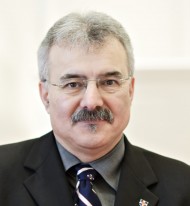
Michael A.G. Haykin is professor of church history and biblical spirituality, as well as director of the Andrew Fuller Center for Baptist Studies, at the Southern Baptist Theological Seminary.
1. Iain Murray, Jonathan Edwards.
A biography of the remarkable American theologian that brings the reader face to face with Edwards’ God.
2. Faith Cook, William Grimshaw of Haworth.
A biography that I hold dear because it is a challenge to my wimpishness, something this Canadian Christian historian deeply laments. Grimshaw was a true radical.
3. Andrew Fuller, Memoirs of Samuel Pearce.
A classic biography that is focused on Pearce’ s piety, which cannot fail to impact the heart for good.
4. Courtney Anderson, To the Golden Shore.
A riveting missionary narrative of the life of Adoniram Judson.
5. Iain Murray, D. Martyn Lloyd-Jones: The First Forty Years, 1899-1939 and D. Marty Lloyd Jones: The Fight of Faith, 1939-1981.
The two-volume biography of Martyn Lloyd- Jones, the most powerful twentieth-century influence on my life.
Nathan Finn

Nathan Finn is the Dean of the School of Theology and Missions at Union University.
1. Courtney Anderson, To the Golden Shore: The Life of Adoniram Judson (1956; reprint, Judson Press, 1987).
This is my all-time favorite biography. Anderson provides an appreciative, but realistic portrayal of an inspiring missionary pioneer.
2. Hugh Evan Hopkins, Charles Simeon of Cambridge (Eerdmans, 1977).
This is a winsome popular biography of a key pastor-theologian in late-eighteenth and early-nineteenth-century British evangelicalism. Required reading for pastors.
3. George Marsden, Jonathan Edwards: A Life (Yale University Press, 2003).
Marsden’s work is the gold standard for a scholarly biography that is at the same time sympathetic toward its subject. His A Short Life of Jonathan Edwards is also great.
4. Peter Brown, Augustine of Hippo, 2nd ed. (University of California Press, 2000).
Many church historians consider this to be the best scholarly biography of a major Christian leader, and I’m often inclined to agree. A close second to Mardsen’s biography of Edwards.
5. David McCullough, John Adams (Simon and Schuster, 2003).
McCullough is a master storyteller. If I ever write a biography, I hope it reads half as well as this excellent popular biography of America’s second president.



